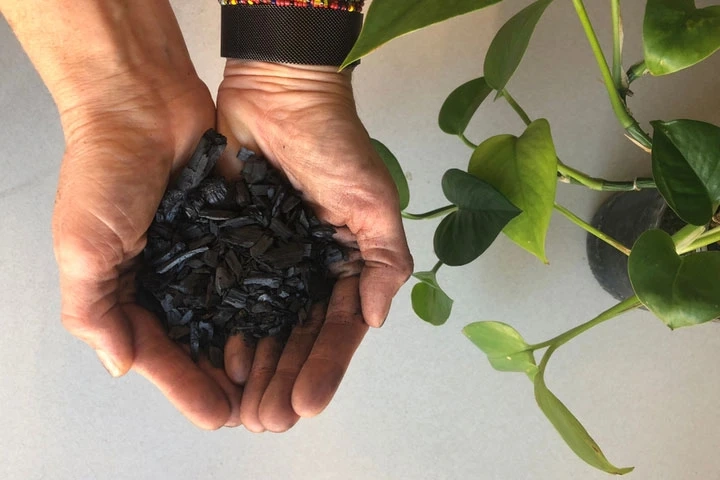Nowadays, many industries are emphasizing using renewable sources of energy to minimize the emission of greenhouse gases causing global warming. The uncertain climatic changes all across the world are one of the consequences of increasing global warming. According to the studies, it is found that climate change is the prime factor behind the downfall of global crop production. Furthermore, during agricultural research, it is figured out that the fertilizers and pesticides used in crop production are also responsible for greenhouse emissions. So, how we grow our crops is also part of healing our atmosphere.
Request Exclusive Sample Report here @ https://www.researchdive.com/download-sample/3862
Biochar, which is a charcoal-like substance made up of burning organic material from agricultural and forestry wastes, can be a one-stop solution for all the emerging global problems. Though it looks like common charcoal, however, it is produced by using a specific process called pyrolysis. In this process, organic materials, such as dead leaves, grasses, forests, and agricultural residues are burned in a container at a high temperature with a near absence of oxygen. During the pyrolysis process, the organic materials are converted into Biochar, which is a stable form of carbon. The energy created during the process of pyrolysis can be used as a clean form of energy. The carbon stored in biochar cannot easily escape to the atmosphere, hence, it is treated as cleaner than other various forms of charcoal. Physically, biochar is black, lightweight, highly porous, and has a larger surface area. Chemically, approximately 70% of its composition is carbon and the remaining percentage consists of hydrogen, nitrogen, and oxygen.
How to Use Biochar for Improving Soil Quality?
Biochar is applied to the soil of agricultural land for a wide range of applications. There exist various preparation techniques for biochar which depend on the specific soil conditions and the type of materials used to make it. Mostly, it is recommended to mix biochar with compost or other materials to immunize the soil with essential nutrients and useful micro-organisms. The process of applying biochar to the agricultural soil varies on the state of the soil whether it is healthy or nutrient-depleted. Therefore, it is necessary to check the state of the soil before applying biochar to get the expected outcome.
Connect with our expert analyst to get more details@ https://www.researchdive.com/connect-to-analyst/3862
What are the Various Applications of Biochar in Agriculture?
Infertile land and soil degradation are becoming a matter of concern for agricultural industries worldwide. To address this booming problem, many researchers suggest using biochar in degraded soils to improve the soil quality and fertility. Following are the multifunctional values of using biochar that may improve the soil quality:
Biochar may play a vital role in enhancing the structure of the soil.It can help in diminishing the acidic nature of the soil.It can be beneficial for improving the microbial propertiesIt can increase the electrical conductivity of the soil particlesIt can act as an immobilizing agent to remediate toxic metals and organic contaminants in the soil and waterBeing porous, it can help mitigate greenhouse gases emissions and other harmful compounds to the atmosphereIt can also be used as a feed supplement to improve animal health and nutrient intake efficiencyIt can increase the water retention capacity and aggregationIt can be used to regulate nitrogen leaching
Biochar: A Beneficial Environmental Solution
Although biochar looks very simple, it has the capacity of solving many global problems, such as using renewable sources of energy, promoting food production, and mitigating climate change. The production of biochar is a carbon-negative process that can sequester a billion tons of carbon annually. Most importantly, the soil can hold biochar for thousands of years. Furthermore, biochar has various other environmental benefits including reduced cost of water filtration, minimized groundwater pollution, reduced risk of crop yielding in the dry season, decreased amount of waste, and many more. Altogether, biochar can be a promising and multifunctional tool that can be immensely beneficial for the climate and regenerative agriculture.
Request for this Report Customization & Get a 10% Discount on this Report@ https://www.researchdive.com/connect-to-analyst/3862
Related Reports:
Automotive Battery Recycling Market
About Us:
Research Dive is a market research firm based in Pune, India. Maintaining the integrity and authenticity of the services, the firm provides services that are solely based on its exclusive data model, compelled by the 360-degree research methodology, which guarantees comprehensive and accurate analysis. With unprecedented access to several paid data resources, a team of expert researchers, and a strict work ethic, the firm offers insights that are extremely precise and reliable. Scrutinizing relevant news releases, government publications, and decades of trade data, and technical white papers, Research dive delivers the required services to its clients well within the required timeframe. Its expertise is focused on examining niche markets, targeting their major driving factors, and spotting threatening hindrances. Complementarily, it also has a seamless collaboration with the major Market aficionado that further offers its research an edge.
Contact Us:
Mr. Abhishek Paliwal
Research Dive
30 Wall St. 8th Floor, New York
NY 10005 (P)
+ 91 (788) 802-9103 (India)
+1 (917) 444-1262 (US) Toll
Free: +1 -888-961-4454
Email: support@researchdive.com
LinkedIn: https://www.linkedin.com/company/research-dive
Twitter: https://twitter.com/ResearchDive
Facebook: https://www.facebook.com/Research-Dive
0


